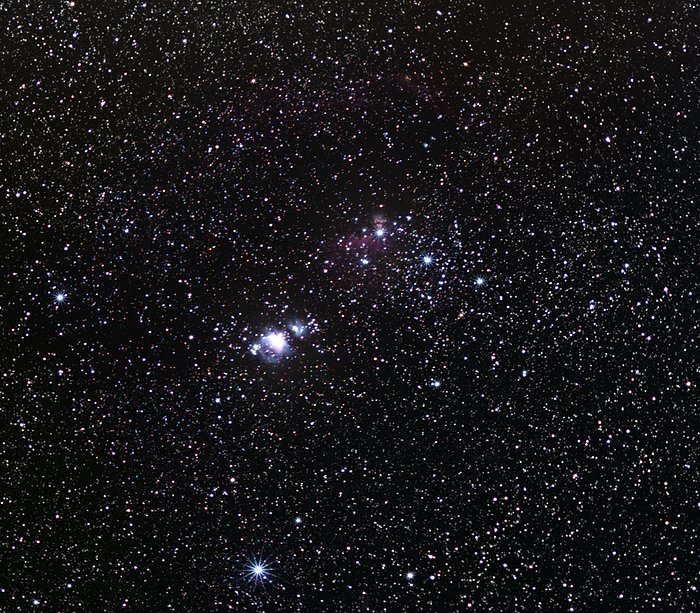The Orion Nebula — the jewel in the sword
The constellation of Orion, one of the most recognisable groupings of stars in the night sky, contains an awe-inspiring nebula. Just below the three stars of Orion’s belt, the hilt of his sword holds a great jewel, the Orion Nebula. Bright enough to be seen with the unaided eye, and beautiful through binoculars, the nebula is a few tens of light-years across and lies at an estimated distance of 1350 light-years from Earth.
The nebula consists of gas and dust illuminated by several hot, massive stars at its core, known as the Trapezium stars. However, the heart of this nebula also conceals a secret from the casual observer. Within the so-called Trapezium Cluster, there are about 1000 very young stars crowded into a space less than the distance between the Sun and its nearest neighbouring stars, the Alpha Centauri trio. The Trapezium Cluster is very hard to observe in visible light, but viewed in infrared light it is plainly visible.
It is unclear who first recorded the existence of the Orion Nebula. The French lawyer Nicholas-Claude Fabri de Peiresc was probably the first to document this “cloudy nebulosity” in late 1610. As an object of striking heavenly beauty, the Orion Nebula has attracted the attention of many astronomers through history. The Italian astronomer Giovanni Batista Hodierna created the first known drawing, though with only three stars in it. Charles Messier, the famous French comet hunter, added it to his catalogue on 4 March 1769 and published it in his Memoires de l'Academie in 1774. It is widely known by Messier’s entry number of 42 (Messier 42).
ESO/S. Brunier
About the Image
| Id: | b05 |
| Type: | Photographic |
| Release date: | 3 December 2009, 23:18 |
| Size: | 1574 x 1378 px |
About the Object
| Name: | Orion Nebula |
| Type: | Milky Way : Nebula : Type : Star Formation |
| Distance: | 1400 light years |
| Category: | Nebulae Solar System |
